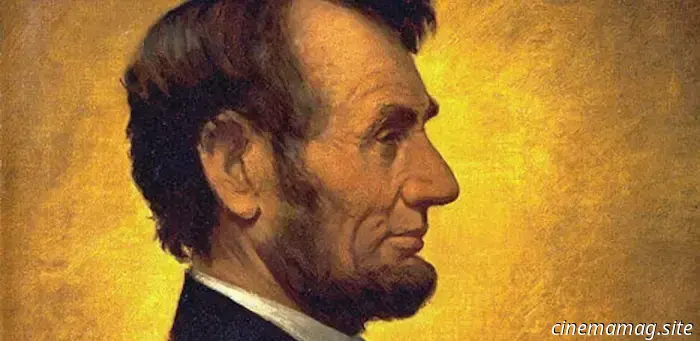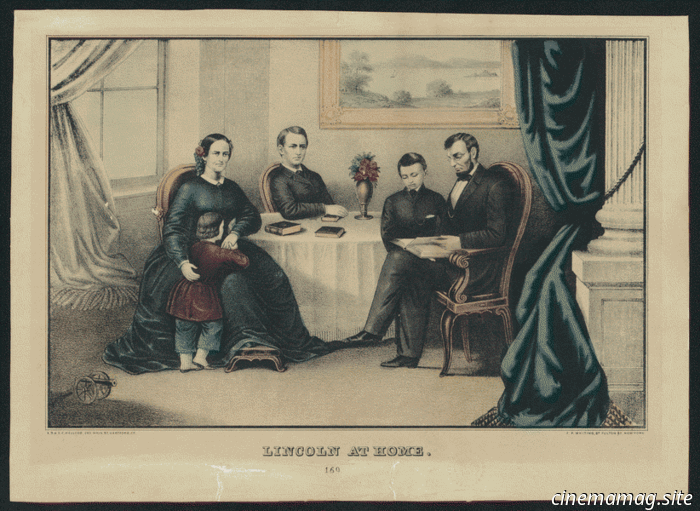
5 Unpleasant Facts About Abraham Lincoln That People Prefer Not to Discuss
Abraham Lincoln was an American icon — albeit one with flaws. While we recognize his significant contributions to our nation, it's important to also confront some uncomfortable realities that reflect the era in which our 16th president lived.
But First, Yes, Of Course, We Know
Credit: C/O
Indeed, President Lincoln was more progressive for his time than many of his white peers. Juneteenth commemorates the date in 1865 when General Gordon Granger, a Union Army officer, led numerous Union troops into Galveston, Texas, to enforce Lincoln’s Emancipation Proclamation, which mandated the end of slavery.
Context is crucial. Lincoln did take a bold and brave stance for his era.
However, it is equally essential to understand the true history of our country, rather than just the most optimistic interpretation. Here are some unpleasant facts about Lincoln that accompany his commendable actions.
Lincoln Prioritized Preserving the Union Over Ending Slavery
Credit: C/O
Lincoln's primary objective during his presidency, which began just before the Civil War in 1861, was to maintain the Union — not to liberate enslaved people.
Historian Christopher Bonner from the University of Maryland notes in Netflix’s documentary Amend: “Lincoln knows that slavery is wrong, which is a positive start. But he states that if he could save the Union without freeing any slaves, he would do so.”
“He needed to restore the South, and at this point, he was willing to do whatever it took to achieve victory, even if it came at the price of Black Americans,” Smith explains regarding Lincoln's mindset during that period.
You don't have to take the documentary's word for it. You can read Lincoln’s letter from August 22, 1862, where he says: “If I could save the Union without freeing any slave, I would do it; and if I could save it by freeing all the slaves, I would do it; and if I could save it by freeing some and leaving others alone, I would do that as well.”
He Did Not Always See People of Color as Equals
Abraham Lincoln on February 9, 1864. Library of Congress – Credit: C/O
In 1861, Abraham Lincoln invited a group of African-American leaders to the White House, as noted by Columbia University historian Eric Foner. Instead of discussing racial equality, he reinforced their subjugation.
In Amend, Pedro Pascal reads Lincoln’s remarks from that day.
“Your race is suffering, in my opinion, the greatest injustice suffered by any group,” he stated. “But even when you cease to be slaves, you are still far from being equal to the white race.”
Lincoln Blamed Black Americans for the Civil War
President Lincoln drafting the Proclamation of Freedom. January 1st, 1863 / painted by David Gilmour Blythe. Library of Congress. – Credit: C/O
In that same address, Lincoln continued:
“Let us acknowledge the truth: if it were not for your race among us, we would not be at war.”
Again, you don't need to rely solely on Netflix for this. Here is a primary source, “Lincoln’s Address on Colonization to a Deputation of Colored Men.”
Lincoln Proposed Relocating Freed Black Americans to Central America
“Lincoln at home,” an Andrew O’Connor portrait of Lincoln and family. Library of Congress – Credit: C/O
He added, “There is a reluctance among our people—harsh as it may be—for you, free colored people, to remain with us. It is better for both parties, therefore, to be separated. The location I have in mind for a colony is Central America.”
Indeed, there was a time when Lincoln sought to remove Black individuals from the U.S. entirely.
“Part of what Lincoln is doing is addressing the persistent doubt among Black individuals that they might not truly belong in this country,” Bonner explains. “He’s suggesting that while we all recognize that equality should be the foundation of this nation, true racial equality is unlikely to occur, so we should face that reality.”
More Detail
Mural of Abraham Lincoln and Frederick Douglass by William Edouard Scott, located at the Recorder of Deeds building, constructed in 1943. Library of Congress. – Credit: C/O
Frederick Douglass, the renowned abolitionist who traveled the country recounting his experiences as a freed slave, was outraged by Lincoln's stance, according to Bonner.
His response? To persuade Lincoln that he needed Black Americans to secure a victory in the war, thereby motivating white Americans to perceive Black Americans as equals.
Douglass stressed that Lincoln could not achieve victory without dismantling slavery and that Black men were critical to the war effort. He argued that men “who would themselves be freed must take action.” His reasoning was that if Black men were willing to fight and shed blood for their country,









Other articles
-Movie-Review.jpg) The Amateur (2025) - Film Review
The Amateur, 2025. Directed by James Hawes. Featuring Rami Malek, Michael Stuhlbarg, Laurence Fishburne, Rachel Brosnahan, Jon Bernthal, Holt McCallany, Julianne Nicholson, Evan Milton, Caitríona Balfe, Nick Mills, Tiffany Gray, Adrian Martinez, Kate Sumpter, David Mills, Anita Anand, Ryan Chilcote, Barbara Probst, Joseph Millson, Marc Rissmann, and Danny Sapani. SUMMARY: When his managers at the […]
The Amateur (2025) - Film Review
The Amateur, 2025. Directed by James Hawes. Featuring Rami Malek, Michael Stuhlbarg, Laurence Fishburne, Rachel Brosnahan, Jon Bernthal, Holt McCallany, Julianne Nicholson, Evan Milton, Caitríona Balfe, Nick Mills, Tiffany Gray, Adrian Martinez, Kate Sumpter, David Mills, Anita Anand, Ryan Chilcote, Barbara Probst, Joseph Millson, Marc Rissmann, and Danny Sapani. SUMMARY: When his managers at the […]
 Trailer for the period action thriller Tornado, directed by John Maclean, known for his work on Slow West.
Lionsgate has released a trailer for Tornado, the forthcoming period action thriller directed and written by John Maclean (Slow West). Taking place in 1790s Britain, the film centers on Tornado (Kōki), a young woman determined to exact revenge on a infamous gang that attacked her father's puppet Samurai performance in order to steal their stolen gold. The film also includes […]
Trailer for the period action thriller Tornado, directed by John Maclean, known for his work on Slow West.
Lionsgate has released a trailer for Tornado, the forthcoming period action thriller directed and written by John Maclean (Slow West). Taking place in 1790s Britain, the film centers on Tornado (Kōki), a young woman determined to exact revenge on a infamous gang that attacked her father's puppet Samurai performance in order to steal their stolen gold. The film also includes […]
 Jenna Ortega discusses her departure from Scream 7: "It wasn't related to payment or scheduling issues."
Jenna Ortega has only been in two of the upcoming seven Scream films, yet she has left a significant impression on long-time fans of the series. This is why the repercussions of her surprising departure from Scream 7 are still resonating today. The reasons behind her exit have been quite unusual, with scheduling frequently mentioned, but […]
Jenna Ortega discusses her departure from Scream 7: "It wasn't related to payment or scheduling issues."
Jenna Ortega has only been in two of the upcoming seven Scream films, yet she has left a significant impression on long-time fans of the series. This is why the repercussions of her surprising departure from Scream 7 are still resonating today. The reasons behind her exit have been quite unusual, with scheduling frequently mentioned, but […]
 A biopic about Hershey is being developed, featuring Finn Wittrock and Alexandra Daddario.
Are you prepared to learn about the history of one of the oldest brands in America and one of the largest chocolate producers globally? According to Variety, Mark Waters (known for Mean Girls and Freaky Friday) will direct a film about Hershey, featuring Finn Wittrock and Alexandra Daddario in leading roles. Wittrock will portray Milton Hershey, who, […]
A biopic about Hershey is being developed, featuring Finn Wittrock and Alexandra Daddario.
Are you prepared to learn about the history of one of the oldest brands in America and one of the largest chocolate producers globally? According to Variety, Mark Waters (known for Mean Girls and Freaky Friday) will direct a film about Hershey, featuring Finn Wittrock and Alexandra Daddario in leading roles. Wittrock will portray Milton Hershey, who, […]
 Nacelle introduces a new line of Star Trek action figures with pre-orders available for wave 1.
Nacelle is preparing to introduce its new line of 1/12th scale Star Trek action figures, with pre-orders currently open for the initial wave. This surprisingly niche selection features figures such as Captain Jellico and Captain Garrett from Star Trek: The Next Generation, Valkris from Star Trek III: The Search for Spock, and Midshipman [...].
Nacelle introduces a new line of Star Trek action figures with pre-orders available for wave 1.
Nacelle is preparing to introduce its new line of 1/12th scale Star Trek action figures, with pre-orders currently open for the initial wave. This surprisingly niche selection features figures such as Captain Jellico and Captain Garrett from Star Trek: The Next Generation, Valkris from Star Trek III: The Search for Spock, and Midshipman [...].
 Director Nia DaCosta discusses The Marvels and its unfortunate aftermath.
Nia DaCosta is a capable director with a clear vision for her projects, yet even she struggled with the workings of Marvel Studios. Now, a couple of years after The Marvels was released, DaCosta has discussed her experience. In a talk at Dublin's second annual screenwriting festival, Storyhouse Ireland, The Playlist reported on DaCosta's reflections regarding the aftermath […]
Director Nia DaCosta discusses The Marvels and its unfortunate aftermath.
Nia DaCosta is a capable director with a clear vision for her projects, yet even she struggled with the workings of Marvel Studios. Now, a couple of years after The Marvels was released, DaCosta has discussed her experience. In a talk at Dublin's second annual screenwriting festival, Storyhouse Ireland, The Playlist reported on DaCosta's reflections regarding the aftermath […]
5 Unpleasant Facts About Abraham Lincoln That People Prefer Not to Discuss
Abraham Lincoln is regarded as an American hero, albeit one with imperfections. While we honor his significant contributions to our nation, it's important to also recognize some uncomfortable realities.
